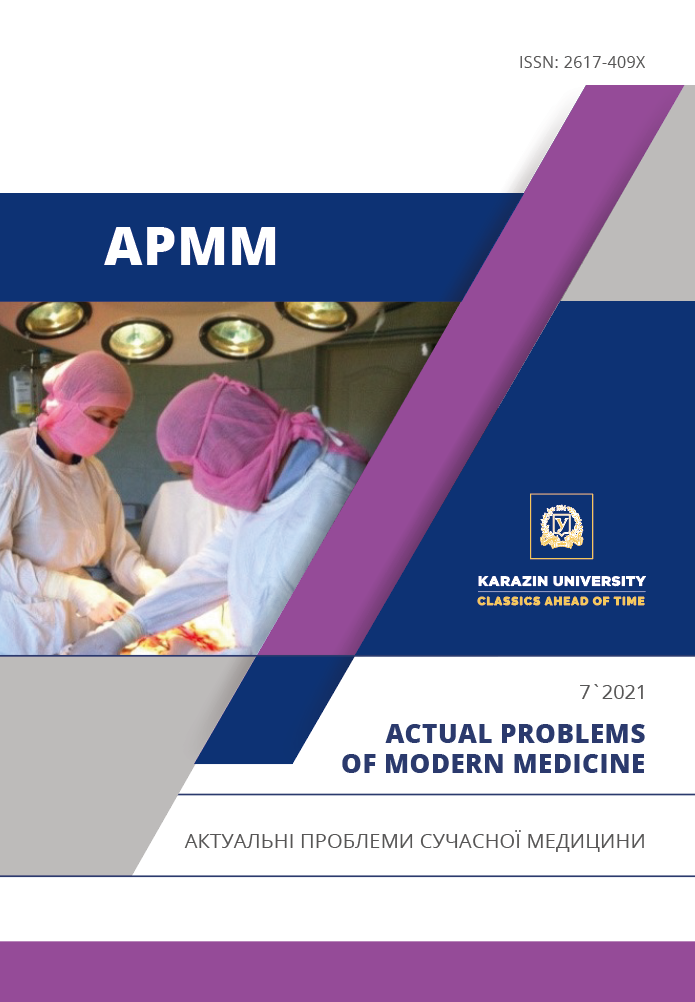Концептуальні засади організації медичної допомоги учням закладів загальної середньої освіти у період реформування медичної та освітньої галузей
Анотація
Негативні тенденції стану здоров’я дитячої популяції, поширення неінфекційних захворювань вимагають запровадження ефективного медичного забезпечення. За даними ВООЗ навчальний заклад спроможний стати потужним інструментом щодо збереження та укріплення здоров’я дітей через раціональне використання кадрового та матеріального потенціалу, можливостей межсекторальної взаємодії систем освіти та медицини, підтримки дій на законодавчому рівні. Метою роботи є визначення концептуальної моделі медичного забезпечення учнів закладів загальної середньої освіти для попередження поширення неінфекційних захворювань та формування здоров’я орієнтованої поведінки школярів. Матеріали та методи. Аналітична оцінка нормативно-правових документів та наукових закордонних та вітчизняних публікацій з питань стану здоров’я та медичного забезпечення дітей шкільного віку. Результати та обговорення. В умовах інноваційної тарнсформації системи охорони здоров’я проблемними питаннями медичного забезпечення дітей в умовах закладів освіти є питання забезпечення чітких алгоритмів моніторингу здоров’я дітей, визначення впливу внутрішньо шкільних та медико-соціальних чинників на здоров’я та формування здоров’я орієнтованої поведінки; окреслити шляхи підвищення навичок та знань медичних працівників закладів загальної середньої освіти з питань збереження здоров’я дітей та оцінки показників здоров’я та результатів профілактичних втручань. Висновки. Рішення даних питань можливе через запровадження єдиної координуючої структури медичного забезпечення учнів закладів загальної середньої освіти, із розробкою її структурно-функціональної моделі та визначенням функцій всіх учасників/виконавців для забезпечення адекватної системи медичного супроводу, збереження здоров’я дітей в умовах закладів загальної середньої освіти. Запропонована Концептуальна модель із обґрунтуванням функцій та складу фахівців, елементів комунікації є спрямованою на профілактику поширення неінфекційних захворювань учнів, формування у школярів ціннісного ставлення до здоров’я, сприятиме формуванню в них здоров’я орієнтованої поведінки.
Завантаження
Посилання
Center for Medical Statistics of the Ministry of Health of Ukraine. https://moz.gov.ua/article/statistic/centr-medichnoi-statistiki-moz-ukraini.
WHO. Investing in the Future of Children: A European Strategy for Child and Adolescent Health. WHO Bulletin. 2020;2015–2020:65. https://www.euro.who.int/__data/assets/pdf_file/0003/253776/64wd12_Rus_InvestCAHstrategy_140440.pdf
WHO. Time to Keep Promises: Meeting the NCD Challenges to Achieve the Sustainable Development Goals in Europe Ashgabat, Turkmenistan, 9-10 April 2019 WHO Bulletin. 2019;9–10:10. https://www.euro.who.int/ru/media-centre/events/events/2019/04/WHO-conference-NCDs-Ashgabat-2019
Antipkin YuG, Volosovets OP, Maidannyk VG, Berezenko VS. MR. The health of children is the future of the country (part 1). Child health. 2018;13(1):1–11. http://nbuv.gov.ua/UJRN/Zd_2018_13_1_3
Antipkin YuG, Volosovets OP, Maidannyk VG, Berezenko VS. MR. The health of children is the future of the country (part 2). Child health. 2018;13(2):1–11. 17. http://nbuv.gov.ua/UJRN/Zd_2018_13_2_3
Peresypkina TV, Sydorenko TP, Peresypkina AM. Dynamics of the health status of children and adolescents of the Kharkov region. Problems of uninterrupted medical training and science. 2019;1(33):5–10. https://doi.org/10.31071/promedosvity2019.01.005
Nyankovskyy SL, Yatsula MS, Nyankovska OS, Tytusa AV. The dynamics of the health of schoolchildren in Ukraine according to the questionnaire survey. Child`S Heal. 2018;13(5):425–31. http://journal.asu.ru/zosh/issue/download/357/138
Order of the Ministry of Health of Ukraine # 157 from 26.01.2018. On amendments to some orders of the Ministry of Health of Ukraine. 2018;https://zakon.rada.gov.ua/laws/show/z0182-18#Text.
Peresypkina TV. Medico-social aspects of the prevention of noncommunicable diseases. Child`S Heal. 2017;12(2):182–7. https://doi.org/10.22141/2224-0551.12.2.2017.99778
Peresypkina TV, Sidorenko TP, Peresypkina AM, Kindruk MO Medical care for students in educational institutions: status, problems and prospects of development. Child health. 2018;13(7):120–125. http://dx.doi.org/10.22141/2224-0551.13.7.2018.148924
Peresypkina TV, Sidorenko TP, Holubnycha HI. Medical care for children in educational institutions: state. Problems of uninterrupted medical training and science/ 2019. № 2.(34) С. 5–9. http://nbuv.gov.ua/UJRN/Psmno_2019_2_3
Korenev NM, Sulima TN, Peresypkina TV, Kostenko TA, Koshman TV, Shevchenko NS, Nikitina LD. A systematic analysis of the time spent by a family doctor in outpatient clinics of general practice and family medicine in the Kharkiv region. Semeina medicine. 2010;3:15-19. http://ecat.knmu.edu.ua/cgi-bin/irbis64r_12/cgiirbis_64.exe?LNG=uk&C21COM=S&I2
Wolfe I. European Child Health Services and Systems Edited by European Child Health Services and Systems : Lessons without borders. 2013. 147 p.
Baltag V, Pachyna A, Hall J. Global Overview of School Health Services: Data from 102 Countries. Heal Behav Policy Rev. 2015;2(4):268–83. http://www.ingentaconnect.com/contentone/psp/hbpr/2015/00000002/00000004/art00004?crawler=true&mimetype=application/pdf
WHO Regional Office for Europe. Pairing children with health services: the results of a survey on school health services in the WHO European Region. WHO [Internet]. 2010;1–30. Available from: http://www.euro.who.int/document/e93576.pdf
European Framework for Quality Standards for School Health Services and Competencies for School Health Professionals. URL: https://www.euro.who.int/__data/assets/pdf_file/0008/261890/European-framework-for-quality-standards-in-school-health-services-and-competences-for-school-health-professionals-Rus.pdf




